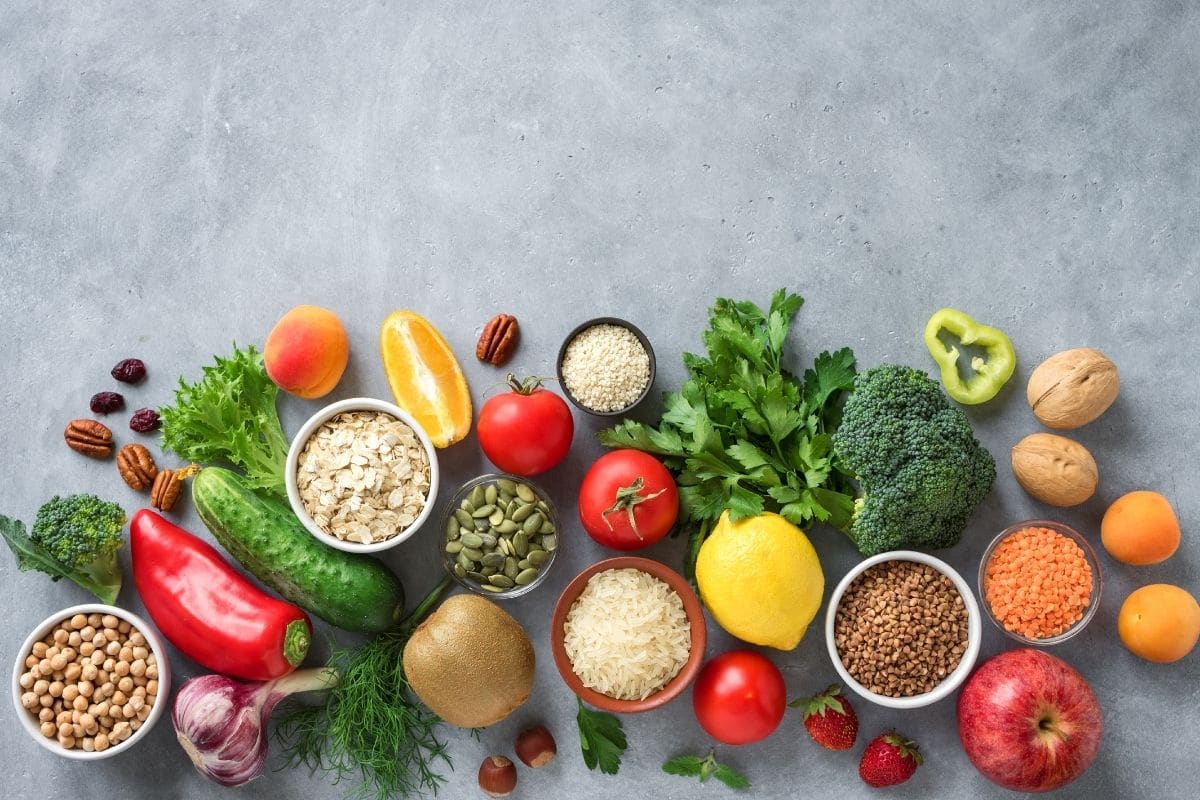Weight management is an essential aspect of maintaining good health and overall well-being. With the rise of sedentary lifestyles and unhealthy eating habits, many individuals are struggling to maintain a healthy weight.

Weight Management Index
Jump to:
Introduction to weight management
According to the World Health Organization (WHO), worldwide obesity has nearly tripled since 1975. In 2016, more than 1.9 billion adults worldwide were overweight, with over 650 million of them being obese.
These statistics highlight the growing global health concern of obesity and the need for effective prevention and treatment strategies to address this issue.
Being overweight or obese can increase the risk of several chronic diseases such as heart disease, diabetes, and certain cancers. However, by adopting healthy lifestyle habits such as regular exercise, a balanced diet, and stress management techniques, weight management can be achieved.
In this article, we will provide a guide to weight management, including tips and strategies for successful lifestyle intervention.

Weight management lifestyle interventions
There are several lifestyle interventions that can be recommended for weight management. These interventions focus on making healthy changes to your daily routine, including your eating habits, physical activity, and stress management. Here are some lifestyle interventions that can be effective for weight management:
- Healthy eating: Eating a balanced and nutritious diet is crucial for weight management. This includes consuming a variety of fruits and vegetables, lean protein sources, and whole grains while limiting processed foods and added sugars.
- Regular exercise: Engaging in regular physical activity is an essential part of weight management. It can help burn calories, improve muscle mass, and boost metabolism. Aim for at least 30 minutes of moderate-intensity exercise most days of the week.
- Stress management: Stress can contribute to weight gain, so learning stress management techniques such as meditation or yoga can be helpful in managing weight.
- Sleep hygiene: Poor sleep habits can also contribute to weight gain. Aim for 7-9 hours of sleep per night and create a consistent sleep schedule to support healthy weight management.
- Mindful eating: Practicing mindful eating can help you make healthier food choices, avoid overeating, and improve your relationship with food.
- Portion control: Paying attention to portion sizes and using smaller plates can help control calorie intake and support weight management.

Weight management dietary interventions
There are several strategies that can be effective in achieving and maintaining a healthy weight. Here are some dietary interventions recommended for weight management:
- Calorie control: Consuming fewer calories than you burn through physical activity and daily living is crucial for weight loss. Aiming for a calorie deficit of 500-750 calories per day can result in a weight loss of 1-2 pounds per week.
- Macronutrient balance: Balancing the intake of carbohydrates, protein, and fat can help manage weight. A general recommendation is to consume 45-65% of calories from carbohydrates, 10-35% from protein, and 20-35% from fat.
- Increased protein intake: Increasing protein intake can help you feel fuller and more satisfied after meals, which may lead to a decrease in overall calorie intake.
- Fiber intake: Eating a high-fiber diet can help you feel full and satisfied, leading to a reduction in overall calorie intake. Fiber-rich foods include fruits, vegetables, whole grains, and legumes.
- Limiting processed and high-sugar foods: Processed and high-sugar foods tend to be high in calories and low in nutrients, leading to weight gain. Limiting the intake of these foods can support weight management.
- Meal planning and preparation: Planning and preparing meals in advance can help you make healthier food choices and avoid impulse eating.
- Drinking water: Drinking water before meals can help you feel full and eat less, leading to weight loss.

Foods to avoid
To support weight management, it's essential to limit or avoid foods and drinks that are high in calories, sugar, and unhealthy fats. Here are some examples of foods and drinks to avoid:
- Sugary drinks: Sugar-sweetened beverages such as soda, sweetened tea, and energy drinks can be high in calories and contribute to weight gain.
- Processed snacks: Processed snacks such as chips, crackers, and cookies tend to be high in calories, unhealthy fats, and added sugars.
- Fried foods: Fried foods such as fried chicken, French fries, and onion rings are high in calories, unhealthy fats.
- White bread and refined grains: White bread, white rice, and other refined grains are low in fiber and can cause a spike in blood sugar levels, leading to weight gain.
- Candy and sweets: Candy, chocolate, and other sweets tend to be high in calories and added sugars.
- High-fat dairy products: Full-fat dairy products such as cheese, butter, and cream can be high in saturated fat and calories.
- Fast food: Fast food is often high in calories, unhealthy fats, and sodium, making it a poor choice for weight management.

Foods to include
Including nutrient-dense, whole foods in your diet can help support weight management. Here are some examples of foods and drinks to include in your diet for weight management:
- Vegetables: Non-starchy vegetables such as leafy greens, broccoli, cauliflower, and bell peppers are low in calories and high in fiber, making them an excellent choice.
- Fruits: Fruits such as berries, apples, oranges, and bananas are high in fiber, vitamins, and minerals.
- Whole grains: Whole grains such as brown rice, quinoa, and whole-grain bread are high in fiber and can help you feel full and satisfied.
- Plant-based protein sources: Plant-based protein sources such as tofu, tempeh, lentils, beans, and peas can help you feel full and satisfied, leading to a reduction in overall calorie intake.
- Nuts and seeds: Nuts and seeds such as almonds, walnuts, chia seeds, and flaxseeds are high in healthy fats, protein, and fiber, making them an excellent choice for a snack.
- Water: Drinking water can help you feel full and satisfied, leading to a decrease in overall calorie intake.
- Herbal tea: Herbal teas such as green tea and peppermint tea can be a low-calorie, caffeine-free alternative to sugary drinks.
By incorporating these foods and drinks into your diet, you can support weight management while also providing your body with the nutrients it needs to function optimally.

Eating tips for weight management
- Eat slowly and mindfully: tune into your hunger levels
- Chew your food to allow for better digestion
- Do not eat food two hours before sleep time
- Be patient: weight gain took a long time to accumulate - weight loss takes time, commitment, and patience.
- Persevere: never give up. Long-term lifestyle change is challenging. Try to enjoy the process, be kind to yourself, and cook as much of your own food as possible.

Sample 1-day weight management meal plan
Here is a sample 1-day plant-based meal plan for weight management:
Breakfast:
- Overnight oats made with oats, almond milk, chia seeds, and sliced bananas, topped with chopped nuts and a drizzle of maple syrup
- Cold-pressed green juice made with kale, spinach, cucumber, celery, lemon, and ginger
Snack:
- Sliced apple with almond butter
Lunch:
- Quinoa and black bean salad with mixed greens, cherry tomatoes, diced avocado, and a lime vinaigrette dressing
- Cold-pressed beet juice made with beets, carrots, ginger, and lemon
Snack:
- Carrots and hummus
Dinner:
- Baked sweet potato topped with black beans, salsa, diced avocado, and cilantro
- Roasted Brussels sprouts with garlic and lemon
Snack:
- Fresh berries with coconut yogurt
Hydration:
- Remember to drink plenty of water throughout the day to stay hydrated.

Weight management summary
Weight management is a crucial aspect of overall health and well-being. A combination of healthy eating habits, regular physical activity, and lifestyle modifications can help achieve and maintain a healthy weight.
To support weight management, it's important to focus on nutrient-dense, whole foods while avoiding ultra-processed foods. Additionally, staying hydrated and getting adequate sleep can also support weight management efforts.
Incorporating these healthy habits into a daily routine can not only support weight management but also improves overall health and well-being.
It's important to consult with a healthcare professional or a registered dietitian to create a personalized weight management plan that meets individual needs and goals.






Did you make this recipe? Let me know!